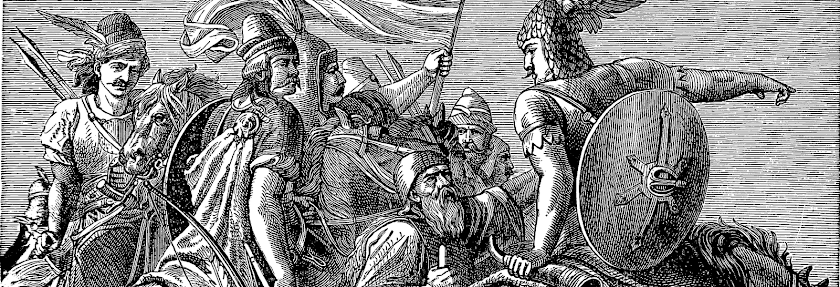I picked up Red Tide through the Worldbuilding Bundle of Holding a while back and got around to reading it tonight while my internet was out. I'd like to thank Comcast for providing me with such an opportunity, because it was quite good (even though it did derail tonight's Traveller game). Red Tide does a number of things cleverly or well:
- The edge of the sandbox-as-survivable-at-reasonable-levels is clearly established by the Tide. Limited scope is clearly established, which makes it a lot more approachable of a setting than say the Wilderlands.
- Likewise, the endgame enemy, the Existential Threat as we like to call it in my group, is obvious from the start. This provides a reasonable initial motivating force for players in a sandbox.
- I guess my point here is this: It's OK to keep the BBEG a secret on an adventure path, because you can guarantee a reveal at a suitable time. If you're going to have an existential threat in a sandbox game, it's a lot harder to get the timing on the reveal right, because your players might never explore that facet of the world, or they might not realize the scope of the threat, or when you do pull the reveal they go "aw man that's no fun at all, I could've cooked up an awesome character background and interesting motivations if I'd known that was coming".
- Further, in addition to having a distant, slow-burn existential threat, there's plenty of not-easily-resolvable internal conflict with the Shogunate, the Shou, and Xian to prevent easy unification against that threat and keep things interesting in the mid-levels. This is another Existential Threat Antipattern I've seen in sandboxes - PCs tunnelvision on gathering personal power and magic resources to combat the ExiThreat while ignoring everything else, including local politics. This approach is particularly likely when local leaders are weak-willed and easily swayed to PC causes. The lack of clear time pressure from the Tide, combined with the power and agenda held by say the Shogun, makes easy unification very unlikely. In short: powerful and unreasonable NPCs make for more interesting Existential Threat Sandboxes.
- Very reasonable explanation for putting a broad mix of cultures (Chinese-derived, Japanesque, Germanic, Norse, tribal, and necromantic-decadent) all into one small part of a setting. Setting is believable within premise.
- Interesting take on elves.
- Tide Cults remind me strongly of Sixth House from Morrowind. There's something about subtle, corrupting, dreaming, waiting evil that appeals to me as a DM.
- Giant pile of sandbox DM material, including both good advice ("Don’t prepare it unless it is fun to make it or you expect to need it for the next session.") and many tags. Had not seen tags before, but I like their minimalist way of attaching potential elements (of strictly useful types) to a site. I didn't get a chance to read all of this, but it looks like something I should put more time into a second-pass reading of.
Anyway, pretty good book, especially for bundle price, would consider ACKSing. The city-states and Shou in close proximity and ready availability of Westermark borderlands would make for a great domain/DaW game without getting up into the empire tier of complexity.
Verdict: if you like running fantasy sandboxes, or reading a cleverly-designed one, you will probably like this and find it useful.
